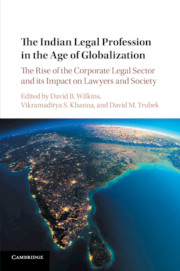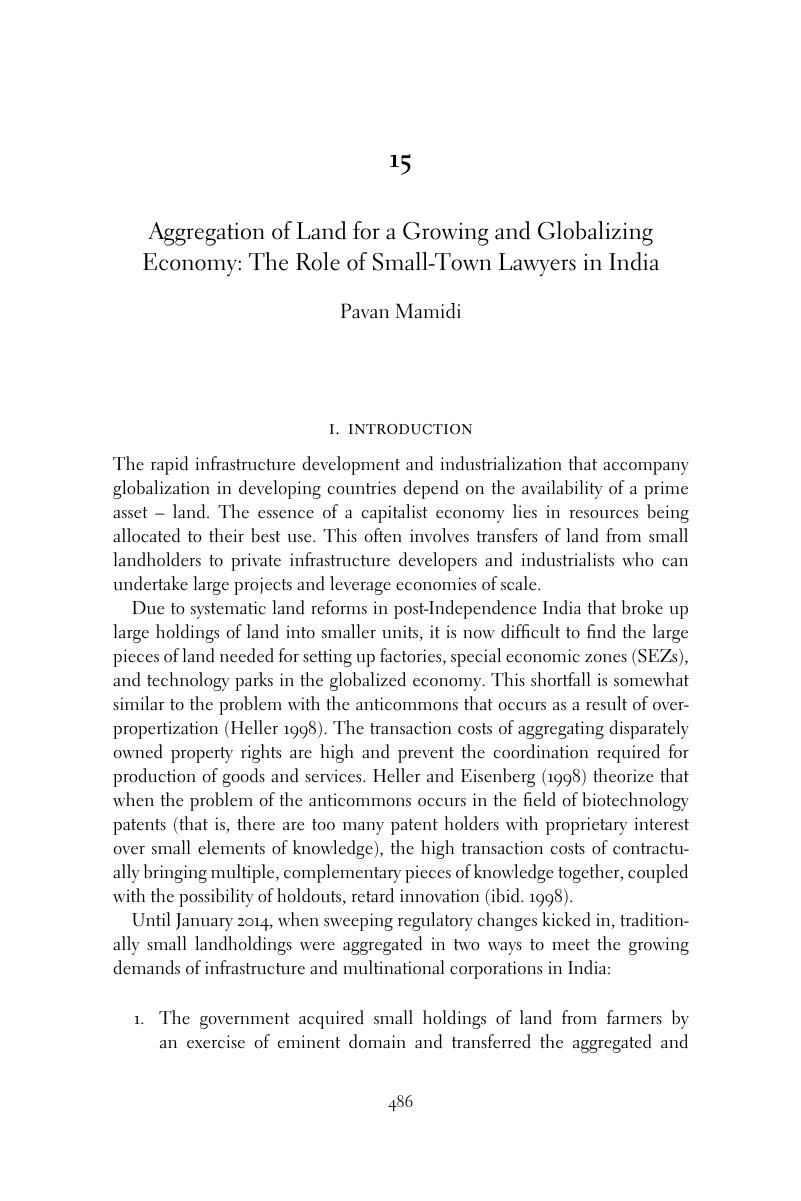 The Indian Legal Profession in the Age of Globalization
The Indian Legal Profession in the Age of Globalization Book contents
- The Indian Legal Profession in the Age of Globalization
- The Indian Legal Profession in the Age of Globalization
- Copyright page
- Dedication
- Contents
- Contributors
- Acknowledgments
- Section I Setting the Stage
- Section II The Growth of the Corporate Core
- Section III New Actors and Functions within the Corporate Core
- Section IV Regulation and Foreign Competition
- Section V Old Lawyers, New Lawyers, and Transforming Roles
- 13 The Evolving Global Supply Chain for Legal Services: India's Role as a Critical Link
- 14 Grand Advocates: The Traditional Elite Lawyers
- 15 Aggregation of Land for a Growing and Globalizing Economy: The Role of Small-Town Lawyers in India
- Section VI Legal Education
- Section VII Capacity Building
- Index
- References
15 - Aggregation of Land for a Growing and Globalizing Economy: The Role of Small-Town Lawyers in India
from Section V - Old Lawyers, New Lawyers, and Transforming Roles
Published online by Cambridge University Press: 25 May 2017
- The Indian Legal Profession in the Age of Globalization
- The Indian Legal Profession in the Age of Globalization
- Copyright page
- Dedication
- Contents
- Contributors
- Acknowledgments
- Section I Setting the Stage
- Section II The Growth of the Corporate Core
- Section III New Actors and Functions within the Corporate Core
- Section IV Regulation and Foreign Competition
- Section V Old Lawyers, New Lawyers, and Transforming Roles
- 13 The Evolving Global Supply Chain for Legal Services: India's Role as a Critical Link
- 14 Grand Advocates: The Traditional Elite Lawyers
- 15 Aggregation of Land for a Growing and Globalizing Economy: The Role of Small-Town Lawyers in India
- Section VI Legal Education
- Section VII Capacity Building
- Index
- References
Summary

- Type
- Chapter
- Information
- The Indian Legal Profession in the Age of GlobalizationThe Rise of the Corporate Legal Sector and its Impact on Lawyers and Society, pp. 486 - 516Publisher: Cambridge University PressPrint publication year: 2017


